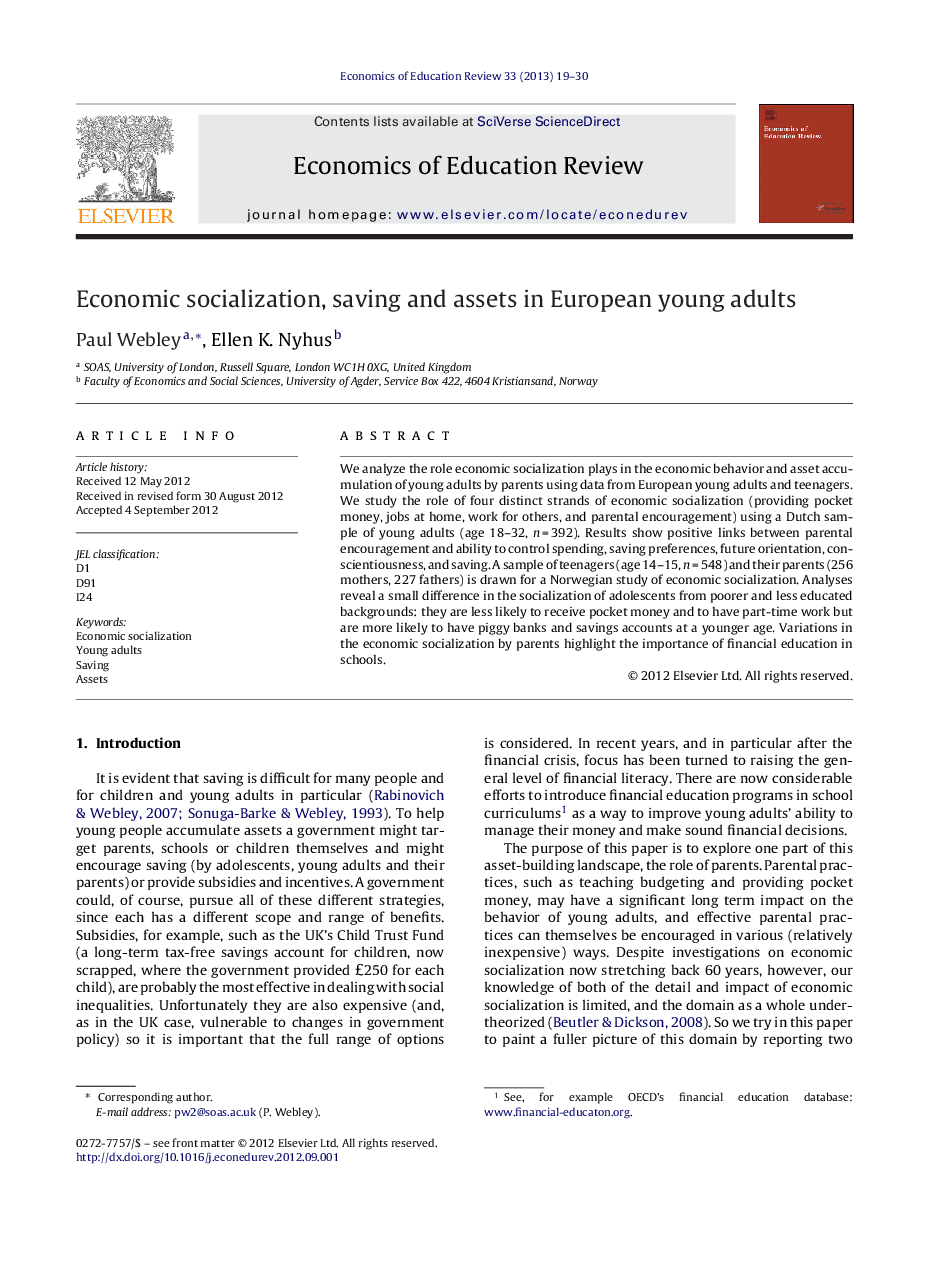| کد مقاله | کد نشریه | سال انتشار | مقاله انگلیسی | نسخه تمام متن |
|---|---|---|---|---|
| 354326 | 1434830 | 2013 | 12 صفحه PDF | دانلود رایگان |

We analyze the role economic socialization plays in the economic behavior and asset accumulation of young adults by parents using data from European young adults and teenagers. We study the role of four distinct strands of economic socialization (providing pocket money, jobs at home, work for others, and parental encouragement) using a Dutch sample of young adults (age 18–32, n = 392). Results show positive links between parental encouragement and ability to control spending, saving preferences, future orientation, conscientiousness, and saving. A sample of teenagers (age 14–15, n = 548) and their parents (256 mothers, 227 fathers) is drawn for a Norwegian study of economic socialization. Analyses reveal a small difference in the socialization of adolescents from poorer and less educated backgrounds: they are less likely to receive pocket money and to have part-time work but are more likely to have piggy banks and savings accounts at a younger age. Variations in the economic socialization by parents highlight the importance of financial education in schools.
► We analyze the role of economic socialization by parents using data from Dutch and Norwegian young adults and teenagers.
► Young adults who had been encouraged to save and taught to budget were more conscientious, more future oriented and better able to control spending.
► The total savings of young adults could be predicted from psychological characteristics and parental encouragement to save as an adolescent.
► Working as an adolescent was positively associated with the amount of debt, and negatively with total savings.
► The socialization experience of those from poorer or less educated backgrounds was no worse than that of those from more affluent backgrounds.
Journal: Economics of Education Review - Volume 33, April 2013, Pages 19–30